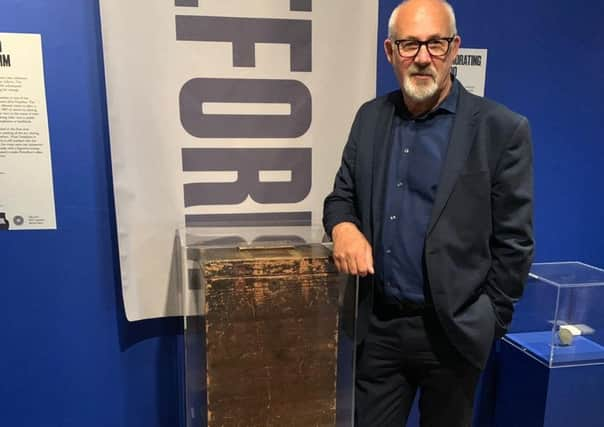How voters in one of the Five Towns became the first to vote in secret


It reminded me just how rich that history is, and how it’s easily as fascinating as any aristocratic period drama you might see on TV, and often do.
One object that struck me was the first ever ‘secret ballot’ box, so people could cast their vote in secret.
Advertisement
Hide AdAdvertisement
Hide AdBut even more interesting, it was in our area - in the 1872 Pontefract by-election - that this secret ballot was first used.
After the passage of the Secret Ballot Act 1872, ballots had to be conducted in secret.
Before this Act of Parliament, people had to register their vote publicly, open to intimidation by employers or landlords, many of whom would often attempt to influence the votes of workers living on their land or working in their factories. It was almost like feudalism.
What was most poignant to me was the fact that people from our area could have been among the first to vote under this new legislation and by this new method.
Advertisement
Hide AdAdvertisement
Hide AdThe historical boundaries of the Pontefract constituency likely included parts of Featherstone, which mean our ancestors could have been part of this historic moment, not only for the country but also for working class people in our area.
When you think of our area’s rich history of struggle, from the Featherstone Massacre to the miners’ strike, it’s fitting that we should play such a prominent role in this story too.
And it’s hard to think of it now, but it shows just how far our democracy has come, especially as we have only recently passed the 100 year anniversary of the Representation of the People Act 1918, which allowed some women to vote for the first time.
However, it also reminds us just how much further our political system still needs to change.
Advertisement
Hide AdAdvertisement
Hide AdOften, people from working class areas, especially those living outside of London, are ignored.
They have been locked out of a political system that works in favour of, and was built by, a tiny elite.
Just last month the Sutton Trust released a new report on privilege in the UK.
It was a shocking reminder that while so much has changed in the last few decades, some things remain the same.
Advertisement
Hide AdAdvertisement
Hide AdFor example, 65 per cent of senior judges, 59 per cent of civil service permanent secretaries and 57 per cent of the House of Lords were educated at independent schools.
Many of these are good people, but many of them also don’t know what life is like for many people across the country who are struggling to get by.
There is, then, still much to be done, and giving people a greater say in the decisions that affect their lives is one way of getting the change we need.
The significance of this ballot box, marked with seals made from Pontefract liquorice, can still be felt today and reminds us to keep fighting for our class, our region and our communities’ right to be heard.